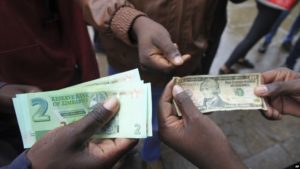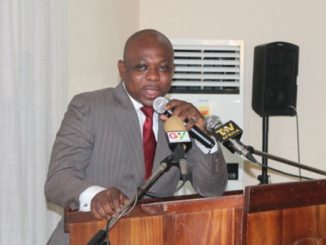 African countries may get debt relief from China more easily than private creditors amid a global push to blunt the economic impact of the coronavirus pandemic on poor nations, a Johns Hopkins University study shows.
African countries may get debt relief from China more easily than private creditors amid a global push to blunt the economic impact of the coronavirus pandemic on poor nations, a Johns Hopkins University study shows.
China has written off $3.4 billion and restructured or refinanced about $15 billion of debt in Africa over the past decade without slapping penalties or seizing assets from borrowers, it said. The study was released a day after Chinese President Xi Jinping vowed to cancel interest-free government loans and rework some commercial obligations of African countries.
An analysis of more than 1,000 Chinese loans, including restructured Mozambican and Republic of Congo debt, “suggest that agreements have been easier to reach with Chinese lenders than with private creditors,” researchers Kevin Acker, Deborah Brautigam and Yufan Huang said in the study published Thursday.
As the continent’s largest single creditor, China is seen as key to the success of the Group of 20 leading economies’ plan to freeze about $11 billion in debt payments from poor countries this year. The initiative has moved slowly, however, with less than a quarter of 73 eligible countries getting a debt waiver.
The study’s findings highlight the difficulties of changing terms on international bonds that have a more disparate ownership structure. Official debt, in turn, can often be renegotiated on political terms.
Some multilateral lenders and private creditors have been reluctant to grant blanket debt relief, citing concerns over rating downgrades and fiduciary obligations. Xi, speaking on a video conference with African leaders, urged the international community to “act more forcefully” on debt relief and suspension for Africa.
China pledged more than $150 billion in loans to Africa between 2000 and 2018, according to Johns Hopkins’ China Africa Research Initiative. That represents about 20% of the continent’s external obligations, according to calculations by the Jubilee Debt Campaign, a London-based group that advocates relief for poor countries.
Still, the terms of much of that debt has been opaque and future negotiations for relief will likely lack transparency as well, according to the study.
“The success of the relief will depend on whether these countries have commercially viable projects that can support their economic recovery, if not a relief is just a delay of their challenges,” said Kaho Yu, senior Asia analyst with risk consultancy firm Verisk Maplecroft.
–
Bloomberg L.P.



